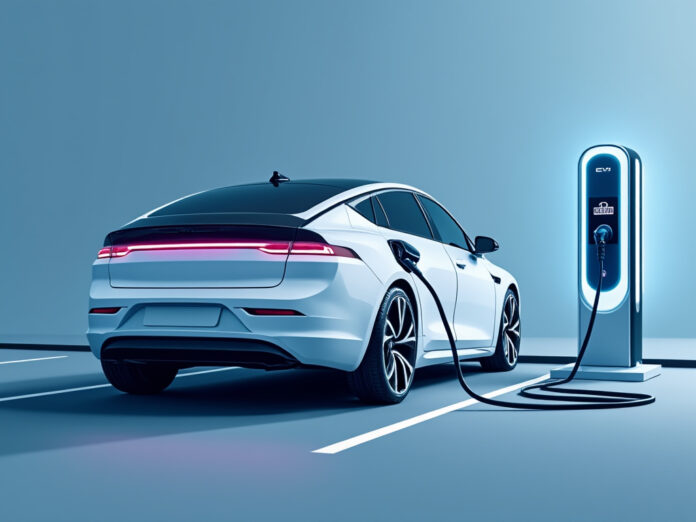Federal Minister for Energy Sardar Awais Ahmad Laghari on Wednesday announced that the Power Division has reduced the electricity tariff for electric vehicle (EV) charging stations by 45%. Charging stations will now pay Rs39.70 per unit, down from the current Rs71 per unit.
Addressing a press conference, the energy minister explained that the tariff reduction represents a historic 44% decrease, making EV charging more affordable for consumers. Alongside this, regulations for establishing the country’s first EV charging stations and battery replacement points have been implemented under the National Energy Conservation Authority (NEECA), an institution of the Power Division. A formal gazette notification for these regulations has also been issued.
He said regulations related to EV charging stations would also be implemented, and registration and business approvals would be granted within 15 days, adding that a special concessional electricity rate for EV charging stations had been introduced.
The minister shared that the circular debt had decreased by Rs12 billion, reaching Rs2,381 billion during the period from July to November 2024, compared to Rs2,393 billion on June 30, 2024. He highlighted a recovery rate of 96% for the same period, a significant improvement over 2023, attributed to the government’s prudent policies.
Laghari further revealed that the Power Division had proposed revised agreements with 18 more Independent Power Producers (IPPs) to the federal cabinet. The Cabinet Committee on Energy (CCOE) approved the Power Division’s summary, permitting single-point power supply to industrial estates and special industrial zones. These zones will now be authorized to manage connections, bill collection, and other related matters. A mechanism to implement this decision is being developed and will be rolled out in the next two to three months.
Discussing EVs, the minister noted that Pakistan has approximately 10 million motorcycles, with an annual fuel expenditure of $6 billion. The conversion of these motorcycles to electric technology, costing an average of Rs50,000, is expected to save billions of dollars in foreign exchange. Owners could recover their investment within three to four months due to savings in fuel costs.
He added that using electric technology in three-wheelers, such as rickshaws, would significantly reduce travel costs, lower fares, and mitigate air pollution caused by harmful emissions. Reduced travel costs would also positively impact the cost of goods delivery within cities, lowering the prices of essential items.
The minister described the Power Division’s initiative as revolutionary, offering not only cost savings but also business opportunities through the establishment of charging stations and battery replacement points in neighborhoods. With concessional rates, charging station or battery point setup approvals can now be obtained in just 15 days via NEECA’s one-window registration system. Registration can be completed online, with a nominal fee of Rs50,000.
The regulations aim to ensure a competitive market, facilitate domestic and foreign direct investment, and achieve the target of 30% EV inclusion by 2030. The framework supports five levels of charging technology and provides equal opportunities for global and regional EV manufacturers. It also includes provisions for monitoring and auditing charging stations and battery replacement points.
The minister emphasized that these initiatives, including preferential electricity rates and regulations for EV charging stations, will create profitable business and investment opportunities, generate employment, and strengthen the national economy.




